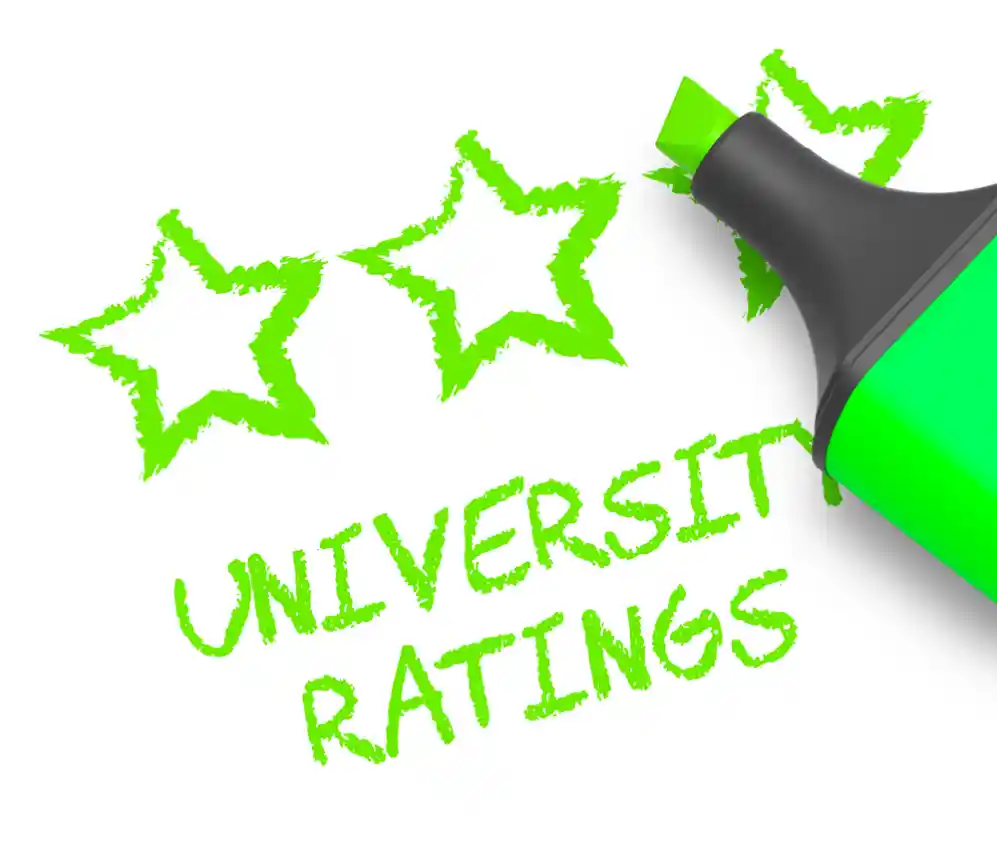The Debate around International Rankings of Universities and Colleges

Every year, global academia awaits the outcomes of several international rankings of universities and colleges. Maybe not in the 20th century but today our decision to pursue international education depends heavily on what these rankings tell about the universities. Whether or not we make it to the desired university, the first thing we inevitably check about a university is its overall performance on the charts. This is a no-brainer that these rankings provide us with a major headstart but a question often comes in the mind: do these rankings actually reflect the truth?
Without a doubt, prominent international rankings maintain defined criteria based on which they determine the ranks. These criteria are in the public domain and can be scrutinized by any member of the public. It is not that these rankings are necessarily superficial but a reasonable analysis will tell you that they don’t tell the whole picture. Therefore, anyone who wants to pursue education abroad should be mindful of the fact that international rankings alone do not decide which university is best suited for you.
To fill you in on this topic, I have compiled a few points that tell where these rankings fall short. Keep them in mind the next time you consider the rankings.
-
Bigger the budget, better the publicity
You must have noticed that universities and colleges from the west, particularly North America and Europe, mostly occupy the top ranks in nearly every ranking, whether it is region-wise, discipline-wise, facilities-wise, and whatnot. No gainsaying that these institutions are indeed good but a major reason why they are good at what they do is because of the sheer size of their budget. For example, Harvard University has the largest endowment that allows it to generously fund students, invest in upgrading the infrastructure, and engage in multiple activities that highlight its contribution to Higher Education. It is not that there are no such universities from other parts of the world; for example, many Chinese universities have found themselves among the top tier universities and maintain a heavy budget for their operations. But, the west is generally more economically powerful than the other parts of the world, and this is reflected in the rankings.
-
The difference among the positions in the rankings list
Most well-established rankings follow standard criteria for deciding places for the participating universities and colleges. It is very difficult to estimate how much difference does every position on the ranking list makes. For example, a university placed at 30 is prima facie better than the one placed at 31, but by what measure? The differences are generally very minor, but this may vary depending on the ranking. A lot of people start looking at universities beyond 50 with suspicion but honestly, the difference among them isn’t very major. So, those who study in a university ranked at 150 haven’t gambled with their future; they are doing just fine.
-
Different methodology
A lot of us may wonder which ranking is more reliable? Scholars argue that ranking agencies often differ in their criteria. Their criteria differ, their point system differs, their priorities differ. Perhaps, for one rating agency research output makes the whole difference; for another, participation of alumni in diverse work fields. You can never tell what is more important because there is no uniformity. It is often argued that rating agencies are often sponsored by big names in the print industry and most of them are based in the west and/or in economically powerful nations in the world. The indicators being used are hardly compatible with the different dynamics of the universities in other parts of the world, especially in developing countries. Hence, you can only rely very limitedly on these rankings because there is no uniform standard used across them.
-
Many important indicators are not considered
If you’d ask why certain factors aren’t considered, their representatives may reply that those factors are difficult to quantify. True, but the factors unconsidered often determine the quality of life in universities or colleges. Merely having comprehensive academic coursework, state-of-art research facilities, sports corridor, air-conditioned hostel rooms, etc do not suffice; the quality of life is also measured by, inter alia, the involvement of the university in extra-curricular activities, promotion of diversity on campus, safety measures for vulnerable sections of the student community such as women and LGBTQ, study pressure, counseling facilities, involvement of teachers in the holistic development of students, and whatnot. You may end up in a lower-ranked university but still, have a more fulfilling student life experience than the one studying in a higher-ranked university.
Bring the best of the CEOWORLD magazine's global journalism to audiences in the United States and around the world. - Add CEOWORLD magazine to your Google News feed.
Follow CEOWORLD magazine headlines on: Google News, LinkedIn, Twitter, and Facebook.
Copyright 2025 The CEOWORLD magazine. All rights reserved. This material (and any extract from it) must not be copied, redistributed or placed on any website, without CEOWORLD magazine' prior written consent. For media queries, please contact: info@ceoworld.biz








